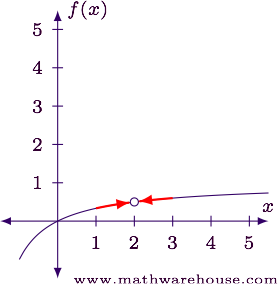We can prove by invariant:
let’s define W(t) as function denoting the amount of gold Chef’s has gathered when time is t, clearly before the game start we have W(0) = 0 (Note chef is the one who finish’s i-th gold mine in A_i time and Chefu finishes in B_i time)
let’s define g_i(t) as the amount of gold that i-th gold mine still has in time t, clearly before the game start we have g_i(0) = G_i
let’s define another function of time H(t) which is equal to H(t) = W(t) + \sum_{i}{g_i(t) \cdot \frac{B_i}{A_i + B_i}}, before the game start we have H(0) = \sum_{i}{G_i \cdot \frac{B_i}{A_i + B_i}}
Fact 1: Chef can play in a way that H(t) never decreases by time.
Fact 2: Chefu can play in a way that H(t) never increases by time.
proof:
We know that if Chef was mining i-th gold mine for very tiny amount of time dt then amount of gold he will gather is \frac{G_i}{A_i} \cdot dt, so the increase of W(t) will be dW(t) = \frac{G_i}{A_i} \cdot dt and decrease in g_i(t) will be dg_i(t) = -\frac{G_i}{A_i} \cdot dt, let’s put those in formula of H(t) and see how much it will change:
dH(t) = dW(t) + dg_i(t) \cdot \frac{B_i}{A_i + B_i}
dH(t) = (\frac{G_i}{A_i} -\frac{G_i}{A_i} \cdot \frac{B_i}{A_i + B_i})\cdot dt
dH(t) = (\frac{G_i \cdot (A_i + B_i) - G_i \cdot B_i}{A_i \cdot (A_i + B_i)} )\cdot dt
dH(t) = (\frac{G_i \cdot A_i}{A_i \cdot (A_i + B_i)} )\cdot dt
dH(t) = (\frac{G_i}{A_i + B_i} )\cdot dt
which means that if chef mined i-th gold mine for dt then H(t) will increase by (\frac{G_i}{A_i + B_i} )\cdot dt, obviously Chef should greedily pick the gold mine with maximum \frac{G_i}{A_i + B_i} to maximize the increase in H(t), but we still need to consider the change caused by Chefu.
we know if Chefu gathered from i-th gold mine for duration dt then W(t) will not change because by definition it’s what Chef gathered not Chefu, but g_i(t) will decrease by amount dg_i(t) = -\frac{G_i}{B_i} \cdot dt, so let’s see the change of H(t)
dH(t) = dW(t) + dg_i(t) \cdot \frac{B_i}{A_i + B_i}
dH(t) = 0 -\frac{G_i}{B_i} \cdot \frac{B_i}{A_i + B_i} \cdot dt
dH(t) = -\frac{G_i}{A_i + B_i} \cdot dt
clearly we see that Chefu should pick the gold mine with maximum \frac{G_i}{A_i + B_i} to maximize the decrease in H(t).
the total change on H(t) made by both Chef and Chefu is (\frac{G_i}{A_i + B_i} -\frac{G_i}{A_i + B_i}) \cdot dt = 0
which means H(t) will never change from the beginning of the game until the end.
let’s recall definition of H(t)
H(t) = W(t) + \sum_{i}{g_i(t) \cdot \frac{B_i}{A_i + B_i}}
since in the end of the game all mines will be empty so g_i(t) = 0 which means in the end of the game we have H(t) = W(t), and since H(t) never changes we conclude that W(t) = H(0) = \sum_{i}{G_i \cdot \frac{B_i}{A_i + B_i}}
Summary:
the optimal strategy is to always gather gold from the mine which has maximum \frac{G_i}{A_i + B_i}, and this means that Chef and Chefu will always gather from the same mine, unless there are multiple maximums, and in this case Chef and Chefu can be gathering from different mines but it doesn’t change the final answer.


 and got AC ( see my submission)
and got AC ( see my submission)